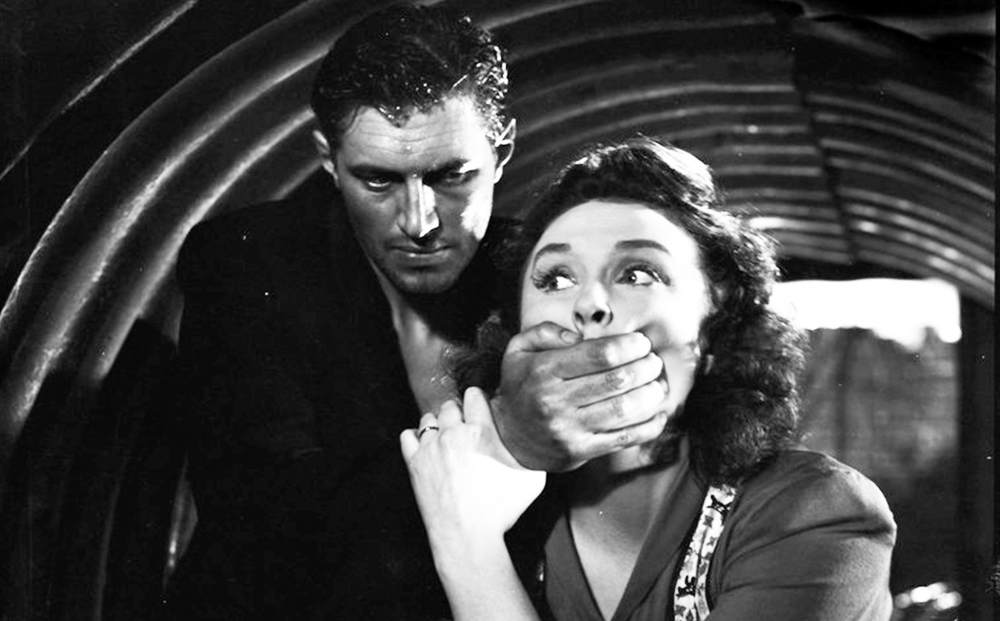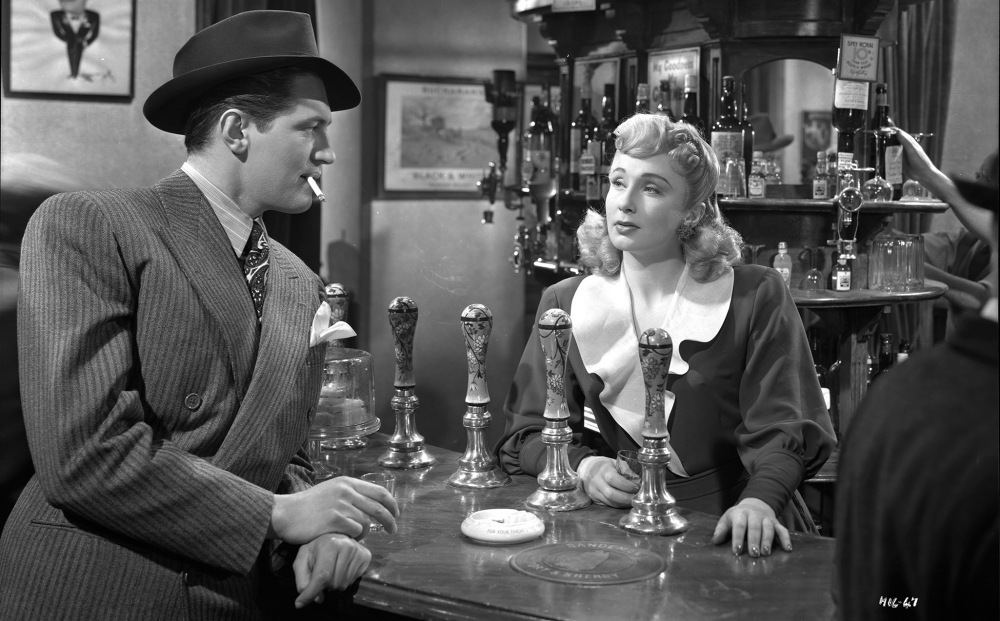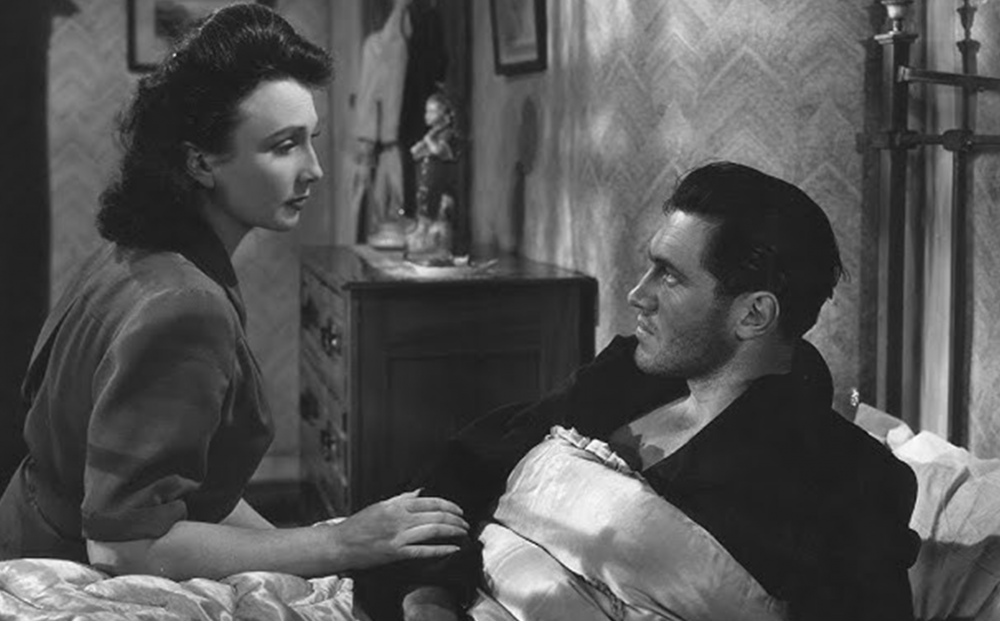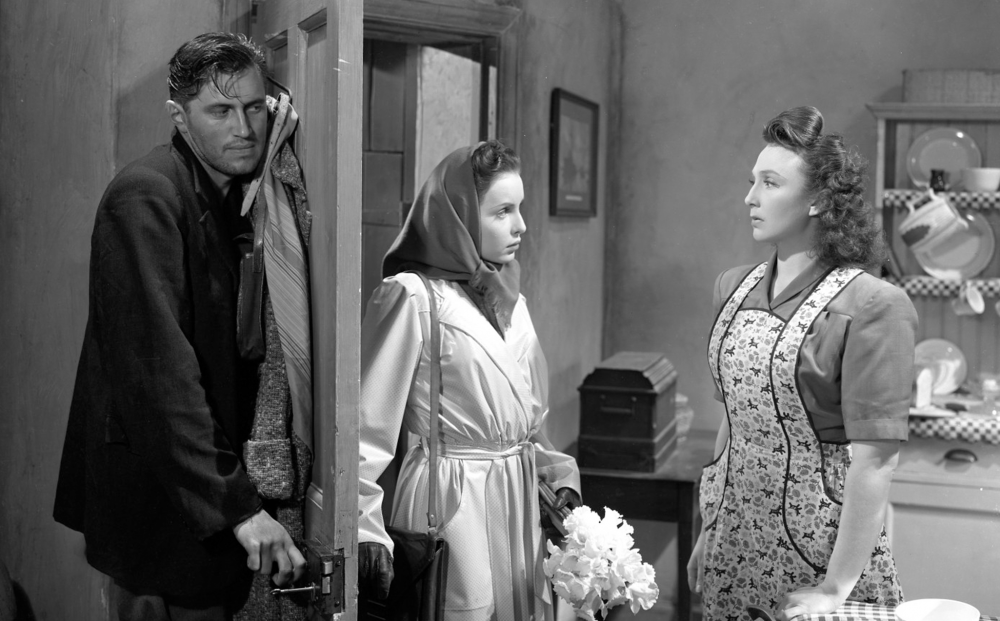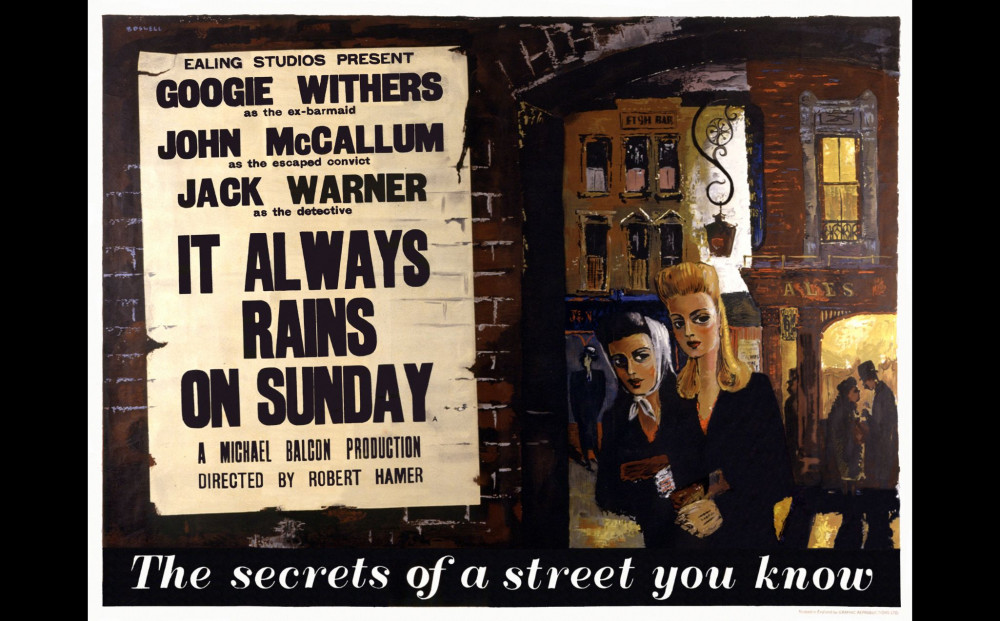IT ALWAYS RAINS ON SUNDAY
U.K., 1947
Directed by Robert Hamer
With Googie Withers, Jack Warner, John McCallum
Photographed by Douglas Slocombe
Approx. 92 min. 35mm.
Another rainy Sunday in Bethnal Green, in London's East End — and another dull one for Googie Withers: rapping on the bedroom wall to summon good stepdaughter to start the tea; nagging her decent but dull hubby to fix a broken window; battling with late-night-partying-with-married-man stepdaughter; and then running through the rain to the backyard bomb shelter/tool shed to find... ex-lover John McCallum, fresh from his Dartmoor prison breakout. Hitchcockian suspense, with atmosphere redolent of French poetic realism - but mainly a Brueghelian slice of post-war British life as, amid a raucous street market, a feckless trio of thieves try to unload a truckload of hot roller skates; a Jewish music store owner/sax player chases one "shiksa" too many; a fight fixer drops a thick roll in the youth center collection box; while comfortably pipe smoking inspector Jack Warner plays Javert throughout a long day — climaxing with an excitingly photographed chase through railroad yards and puffing steam engines, two suicide attempts, and a murder. Unusual fare for Ealing Studios, home to the archetypally cozy British comedy (THE LAVENDER HILL MOB, PASSPORT TO PIMLICO, etc. etc.), but in fact its first popular success; and marking a kind of transition from the upper class pre-war cinema to the coming Angry Young Man/"kitchen sink" school. Ealing auteur maudit Robert Hamer would next make the icily brilliant comedy KIND HEARTS AND CORONETS; cameraman Douglas Slocombe would later shoot all three Indiana Jones films; composer Georges Auric would soon create the scores for ROMAN HOLIDAY and RIFIFI; and star Googie Withers, doyenne of "Brit Noir" (DEAD OF NIGHT, Dassin's NIGHT AND THE CITY), would wed co-star McCallum the following year.
Reviews
“Hamer's artful and iconoclastic film mixes a day in the life of a working-class family with a startling prison-break melodrama.”
– Micheal Sragow, The New Yorker
“The drama is managed without condescension and with enormous skill.”
– Peter Bradshaw, The Guardian
“Like a British counterpart to Carné's Port of Shadows, another tale of doomed lovers and petty criminals adrift on rainswept streets.”
– The Independent
“Almost the definitive post-war British film... Excellently photographed, particularly in its tense and underplayed side street and railroad yard chase climax... One of the best films from the tragically short career of Robert Hamer.”
– William K. Everson.

